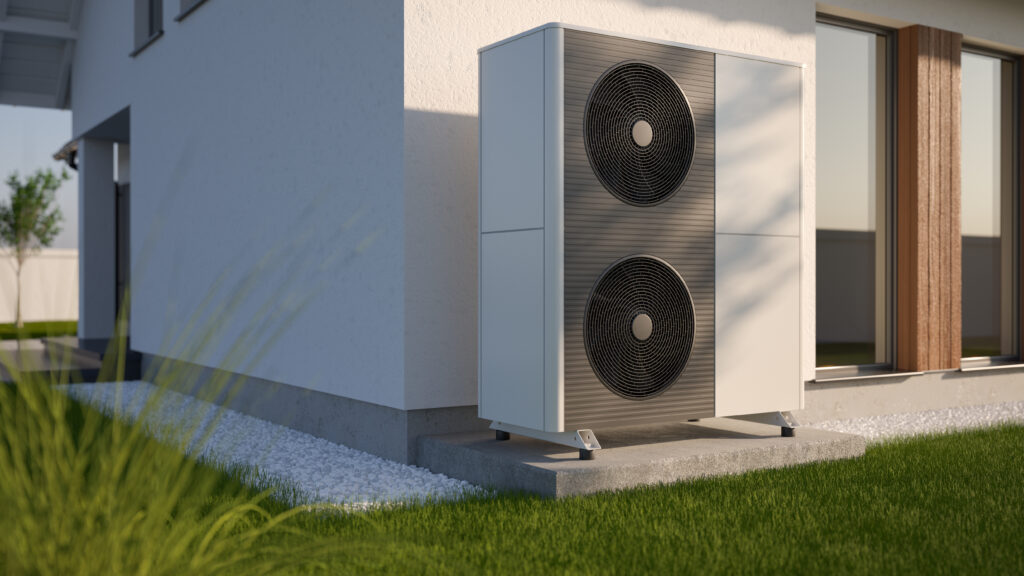
In the pursuit of creating energy-efficient and eco-friendly solutions for cooling our homes, heat pumps have emerged as a remarkable technology.
Traditionally known for their heating capabilities, heat pumps have now expanded their reach to provide efficient cooling as well.
This blog will explore how heat pumps can be utilised for cooling your house, offering a cost-effective and sustainable alternative to traditional air conditioning systems.
But first let’s see how heat pumps work
Understanding Heat Pumps
To comprehend how heat pumps can cool your home, it’s essential to grasp their basic functionality.
Heat pumps work on the principle of transferring heat energy from one location to another using a refrigeration cycle.
By reversing this cycle, they can extract heat from indoors and expel it outside, creating a cooling effect within the house.
The Cooling Process
Heat pumps accomplish cooling by utilising a refrigerant that circulates between two main components: the indoor and outdoor units.
During the cooling mode, the indoor unit acts as an evaporator, absorbing heat energy from inside the house.
The refrigerant evaporates, absorbing the indoor heat and transforming it into a low-pressure gas.
This gas is then pumped to the outdoor unit, where it releases the absorbed heat to the environment. The refrigerant condenses back into a liquid state, ready to repeat the cycle.
This all sounds like a very elaborate technical process. And I know what you’re thinking.
“This has to consume a crazy amount of energy”.
Actually it’s not as expensive as you think.
Advantages of Heat Pump Cooling
Heat pumps are renowned for their energy-efficient nature.
By transferring heat instead of generating it, they consume significantly less energy compared to conventional cooling systems.
This efficiency translates into reduced energy bills and a smaller carbon footprint, contributing to a greener environment.
One of the major advantages of heat pumps is their ability to provide both heating and cooling.
With a single system, you can enjoy a comfortable living space throughout the year.
This versatility eliminates the need for separate heating and cooling systems, saving money on installation, maintenance, and space.
In addition to cooling, heat pumps effectively dehumidify the air.
As they operate, the evaporator coil condenses moisture from the indoor air, reducing humidity levels.
This is particularly beneficial in humid climates, where excessive moisture can lead to discomfort, mould growth, and other indoor air quality issues.
While heat pumps offer numerous advantages for cooling your home, it’s important to consider a few factors.
Not all heat pumps are created equal. And not all of them have the same features and functionalities.
Also, since they have such an elaborate installation with numerous essential components, servicing such equipment has to be done by a certified professional.
So if you’re considering purchasing a heat pump, or if you’re not sure your system can cool your home, hit the button below and book your free consultation.
We’d be happy to help you find the right solution for your home.
